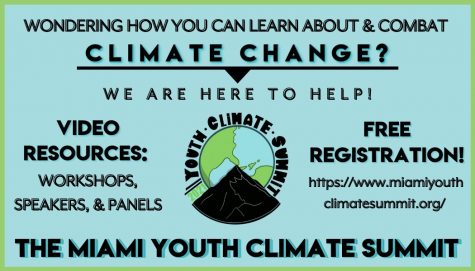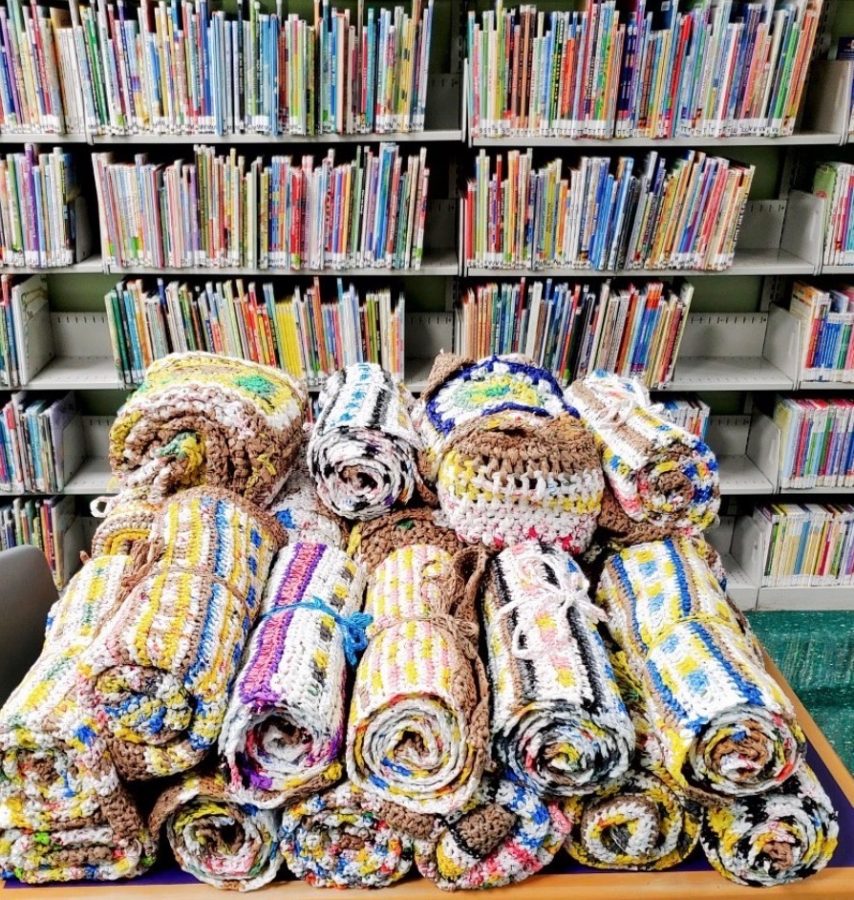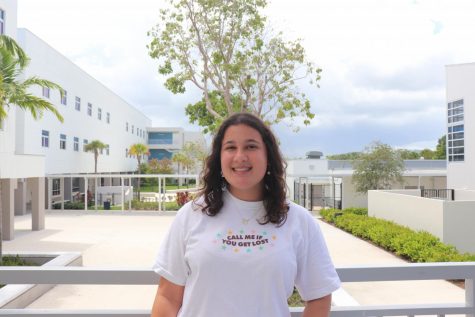Serving the Needs of the Environment and the Homeless: “Plarning” Initiative Upcycles Plastic Bags into Sleeping Mats
April 17, 2021
Diverting plastic bags from landfills, volunteers at the Pinecrest Branch Library create plastic yarn, or “plarn,” balls to make weather-barrier sleeping mats for the homeless. The Pinecrest Library serves as the only site for community service hours in the Miami-Dade Public Library System, causing the plarning initiative to grow in size from an influx of teen volunteers.
According to Miami-Dade County Waste Management, only one percent of plastic bags are returned for recycling. The plarning initiative has led to the creation of almost 300 plarn balls, upcycling these one-use bags with a second purpose.
The Pinecrest Branch Library offers five community service hours for each 75 bag ball of plarn volunteers make. Prior to the pandemic, the library held plarning classes on-site. MDPLS Zoom programming began in Sept. 2020. The online plarn class lasts around an hour and occurs any Saturday a group of teens shows interest in the program.
“We used to have large groups of Girl Scouts or from high school service clubs who would visit in person, but now our Zoom sessions usually average around 20 to 25 participants,” program founder and branch manager of the Pinecrest Branch Library Ellen Book said. “We explain how everything gets done in a step-by-step process.”
After registering for a class, volunteers can collect their own bags, or the library will provide them. Volunteers must also have scissors, two paper clips, a ruler and a rubber band to start making plarn.

“Being on Zoom has amped up our abilities to reach out to people because sometimes people couldn’t necessarily make it to the programming in person. In the meetings, we begin by teaching our volunteers how to process a plastic bag,” Pinecrest Library Youth Service Specialist, Jennifer Hernandez said. “Basically, they stretch it out flat, fold it and cut it into strips. This takes around four minutes per bag and the process is repeated until they have processed enough bags to create a plarn ball.”
Volunteers must cut 900 strips out of 75 plastic bags to have enough plastic to make one plarn ball. They also must use the same color bag for consistency. Once they complete the plarn ball, volunteers can drop them off at the library and receive their community service hours. This past February, the Pinecrest Library gave 58.5 community service hours to teen volunteers for creating plarn balls.
“The project has erupted in popularity since the pandemic began. We decided to be extremely trusting and allow people to gain community service hours while plarning at home,” Pinecrest Branch Library Assistant, Lori Buono-White said. “It is a long process and people were at home with a lot more free time on their hands. We are also one of the few places where teens can get community service hours during the pandemic. Those factors have contributed to the uptick in the amount of plarn balls we have received.”
Buono-White and other librarians send the donated plarn balls to the Country Walk Library, where the volunteer group, Helping Hands, crochets the plarn balls into mats for the homeless.
Helping Hands began with Book, who served as dual branch manager of Pinecrest and Country Walk Branch Libraries from 2016 to 2020.
“I’m a part of the South Miami Garden Club, and at one of our board meetings, I was sitting next to the treasurer and she mentioned plarning at red lights. I asked her, ‘You’re doing what?’ and she explained to me her whole process,” Book said. “I was in awe of the implications of upcycling plastic bags, so I invited her to teach our very crafty library page at Country Walk to create a plarning program; thus, Helping Hands was born.”
At the Country Walk Library, senior volunteers use the plarn balls made by teens at the Pinecrest Branch Library to crochet 3’ x 6’ mats, which require approximately 198 plastic bags to make.
“Plarning has really become an art form. Many volunteers split up their bags by color and number each row before stitching them together to make beautiful patterns,” Buono-White said.
Volunteers need around two weeks to create one adult-sized mat. They often require additional time to create a color scheme. To date, Helping Hands has donated approximately 700 mats to the homeless.
“The homelessness situation in Miami is extremely alarming, with so many coming down from the north due to the winter weather,” Book said. “People from church groups help to pass out the plarn mats in downtown Miami as a barrier to the elements, allowing the homeless to sleep more comfortably.”
The program has also expanded its efforts and donates mats to the homeless in West Miami and Homestead. Due to unemployment caused by the COVID-19 pandemic, Miami’s homeless population has increased. According to the Camillus House, 1,347 homeless people sleep on the street in Miami on an average night.
Helping Hands has received numerous awards and recognition for its efforts to combat homelessness in MDC. In 2019, Miami Today awarded the program a Silver Medal. The year prior, they won the 2018 National Association of Counties Achievement Award, and in 2017, they earned recognition in The American Library Association’s Programming Librarian’s best practices website.
“We have collection boxes for plastic bags spread throughout the community. After being featured on T.V. by WVSN, I received emails from Royal Caribbean, Kaiser University, Comcast, and they wanted to set up collection boxes for plastic,” Book said.
After collection boxes fill up, the plastic bags are quarantined for at least 48 hours. Then, they are ready for distribution to plarning volunteers. Though mainly teens participate at the Pinecrest Branch Library, the initiative has inspired other demographics to contribute.
“It has not been just one age, one gender or one race; it is really the entire community coming together to support the program… People from Peru, Haiti and the Congo have come to the library to learn about the art of plarning to combat homelessness in their resident countries,” Book said. “The project has taken off worldwide and it just took one spark from one person to make such an impact on teens, the homeless and the environment.”
The next plarning class takes place on Saturday, May 1 from 2:30 p.m. to 3:30 p.m. Space is limited, and prospective volunteers can register by clicking this link.








